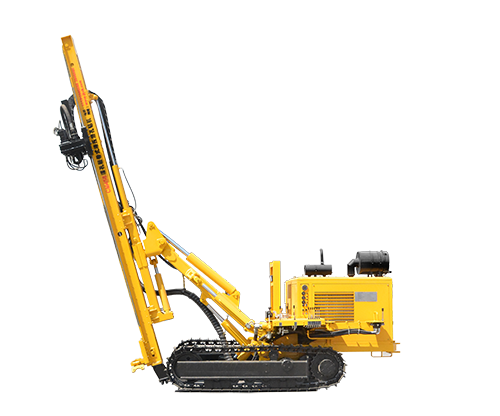Sep. 25, 2023
Machinery
Hydraulic drilling rigs, commonly used in various industries such as construction, mining, and geotechnical engineering, can enhance workplace security in several ways:
Safety Features:
Hydraulic drilling rigs often come equipped with advanced safety features, such as emergency stop buttons, safety interlocks, and sensors that detect abnormal operating conditions. These features help prevent accidents and protect workers on the job.
Stability and Precision:
Hydraulic systems provide precise control over drilling operations, which reduces the likelihood of accidents caused by drilling deviations or unstable drilling platforms. This precision enhances the overall safety of the drilling process.
Reduced Manual Labor:
Hydraulic drilling rigs are designed to handle heavy-duty tasks with minimal manual labor. This reduces the physical strain on workers, lowering the risk of musculoskeletal injuries and fatigue-related accidents.
Remote Operation:
Some hydraulic drilling rigs can be operated remotely, allowing workers to control the rig from a safe distance. This is particularly beneficial in hazardous environments or when drilling in unstable terrain.

Improved Ergonomics:
Hydraulic rigs are often designed with ergonomics in mind, ensuring that controls and interfaces are user-friendly. This minimizes the risk of operator error and enhances overall workplace safety.
Reduced Noise and Vibration:
Hydraulic drilling rigs tend to produce less noise and vibration compared to their mechanical counterparts. Reduced noise and vibration levels improve worker comfort and reduce the risk of hearing damage and whole-body vibration-related health issues.
Safety Training:
Operators of hydraulic drilling rigs typically undergo comprehensive training to operate the equipment safely. This training covers safety protocols, equipment operation, and emergency procedures, contributing to a safer workplace.
Maintenance and Inspection:
Regular maintenance and inspection of hydraulic drilling rigs are essential to ensure they operate safely. Manufacturers often provide guidelines for maintenance, and workers are trained to spot and address potential issues, enhancing rig safety.
Emergency Response Planning:
Workplaces that use hydraulic drilling rigs typically have well-defined emergency response plans in place. These plans include procedures for responding to accidents, equipment failures, or other unexpected events, ensuring worker safety is a priority.
Environmental Considerations:
Hydraulic drilling rigs are often engineered to minimize environmental impact, especially in ecologically sensitive areas. This environmental stewardship indirectly contributes to workplace security by mitigating potential ecological hazards.
Compliance with Regulations:
Hydraulic drilling rig operators must adhere to industry-specific safety regulations and standards. Compliance with these regulations is critical for ensuring workplace safety and minimizing risks associated with drilling operations.
In conclusion, Jinke hydraulic drilling rigs enhance workplace security through a combination of advanced safety features, precision control, ergonomic design, and operator training. These measures collectively reduce the likelihood of accidents, protect workers, and contribute to a safer working environment in industries where drilling operations are common.
Previous: What is a doypack machine?
If you are interested in sending in a Guest Blogger Submission,welcome to write for us!
All Comments ( 0 )